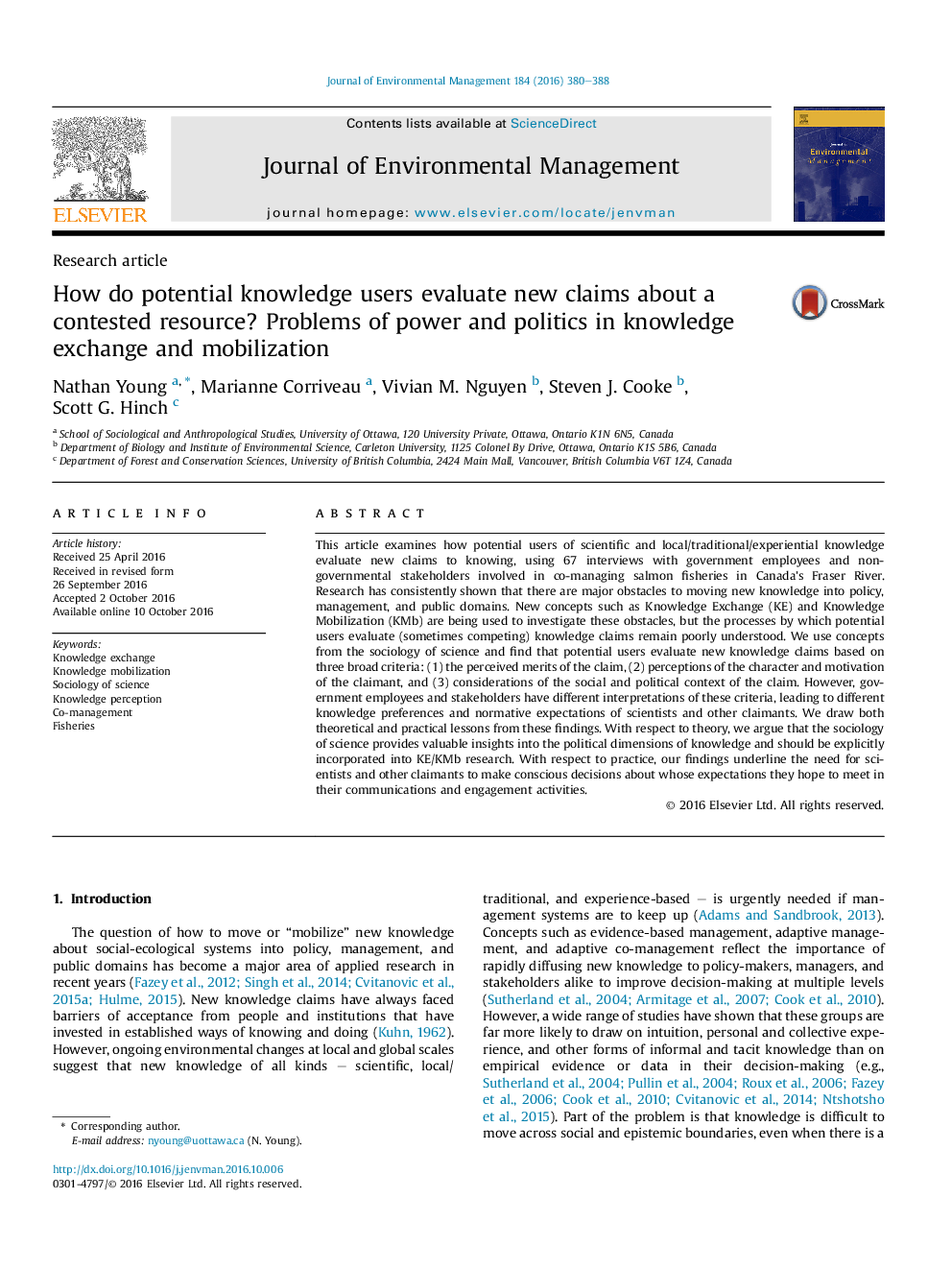| کد مقاله | کد نشریه | سال انتشار | مقاله انگلیسی | نسخه تمام متن |
|---|---|---|---|---|
| 5117103 | 1378115 | 2016 | 9 صفحه PDF | دانلود رایگان |
- An investigation of how government employees and stakeholders evaluate new knowledge.
- The groups have varied knowledge preferences and normative expectations of claimants.
- Government employees prefer knowledge that de-politicizes potential conflicts.
- Stakeholders prefer knowledge that encourages or allows for political action.
- Findings are analyzed using concepts from the sociology of science.
This article examines how potential users of scientific and local/traditional/experiential knowledge evaluate new claims to knowing, using 67 interviews with government employees and non-governmental stakeholders involved in co-managing salmon fisheries in Canada's Fraser River. Research has consistently shown that there are major obstacles to moving new knowledge into policy, management, and public domains. New concepts such as Knowledge Exchange (KE) and Knowledge Mobilization (KMb) are being used to investigate these obstacles, but the processes by which potential users evaluate (sometimes competing) knowledge claims remain poorly understood. We use concepts from the sociology of science and find that potential users evaluate new knowledge claims based on three broad criteria: (1) the perceived merits of the claim, (2) perceptions of the character and motivation of the claimant, and (3) considerations of the social and political context of the claim. However, government employees and stakeholders have different interpretations of these criteria, leading to different knowledge preferences and normative expectations of scientists and other claimants. We draw both theoretical and practical lessons from these findings. With respect to theory, we argue that the sociology of science provides valuable insights into the political dimensions of knowledge and should be explicitly incorporated into KE/KMb research. With respect to practice, our findings underline the need for scientists and other claimants to make conscious decisions about whose expectations they hope to meet in their communications and engagement activities.
Journal: Journal of Environmental Management - Volume 184, Part 2, 15 December 2016, Pages 380-388
